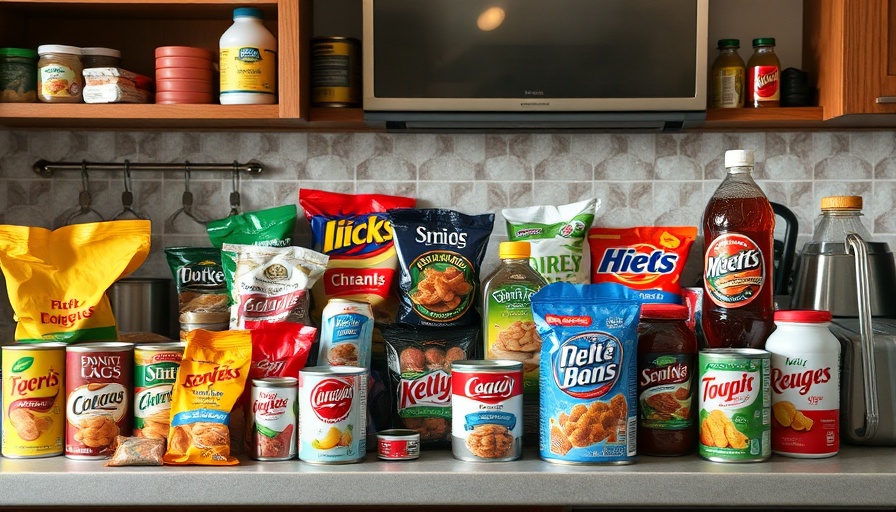
Processed Foods and Their Role in the Diabetes Epidemic
Diabetes has transformed into a global health burden that continues to climb at alarming rates. A staggering 537 million adults were affected by diabetes in 2021, and predictions suggest that the number may reach 643 million by 2030 and 783 million by 2045, according to the International Diabetes Federation. The rise of diabetes is not confined to a specific area; it's a widespread issue that can affect anyone, anywhere.
The Link Between Ultra-Processed Foods and Diabetes
As diabetes rates soar, many experts are investigating the underlying causes—one of the most concerning is the increasing consumption of ultra-processed foods (UPFs). These foods, often created with a variety of additives for flavor and extended shelf life, dominate the diets of many, especially in developed countries. In fact, in nations like the United States and the United Kingdom, UPFs can make up more than 50% of total caloric intake.
The NOVA Food Classification: A Framework for Understanding
The concept of ultra-processed foods was introduced through the NOVA food classification system in 2009. This system categorizes foods into four groups based on the extent and purpose of processing:
- Group 1: Unprocessed or Minimally Processed Foods – Foods that are largely intact, such as fresh fruits, vegetables, and whole grains.
- Group 2: Processed Culinary Ingredients – Extracted substances, like oils and sugars, used for cooking.
- Group 3: Processed Foods – Categories of foods with added ingredients, yet still recognizable.
- Group 4: Ultra-Processed Foods – Products that contain industrial formulations and additional additives.
Understanding this categorization is essential for grasping how certain foods can sabotage metabolic health.
How Processed Foods Adversely Affect Our Health
Research indicates that the consumption of ultra-processed foods may contribute significantly to diabetes risk. These foods often lack essential nutrients and are high in sugars and unhealthy fats, making them hyper-palatable and more likely to lead to overconsumption. The continual intake can reset our body's metabolic functions, leading to insidious health issues.
Possible Mechanisms of Action
There are several potential mechanisms by which ultra-processed foods contribute to metabolic disorders:
- Inflammation: UPFs can promote systemic inflammation, which is linked to insulin resistance.
- Gut Health: The preservatives and additives in UPFs can disturb gut microbiota, leading to impaired metabolic health.
- Increased Caloric Intake: The combination of flavors and textures in UPFs is designed to make us want more, leading to excess calorie consumption, in turn spiking blood sugar levels.
Empowering Yourself Through Knowledge
With this knowledge, consumers have the power to make informed choices. Being aware of the impact of ultra-processed foods can motivate individuals to prioritize whole foods such as fruits, vegetables, and lean proteins. Fresh nutritional choices can be both delicious and rewarding, promoting satisfaction without compromising health.
Frequently Asked Questions (FAQs)
- What are common examples of ultra-processed foods? Foods like sugary snacks, ready-to-eat meals, and sodas fall under this category.
- How can I transition to a healthier diet? Start by incorporating more whole foods and reducing reliance on processed snacks. Meal prepping can also help manage diet quality.
- When should I talk to a healthcare provider? If you are concerned about your dietary choices and how they may impact your health, it's always best to consult a professional.
Conclusion: A Call to Action for Healthier Choices
Understanding the relationship between processed foods and diabetes empowers you to take control of your health. Choosing to reduce your intake of ultra-processed foods can lead to significant improvements in metabolic health and overall well-being. Start today; even small changes can lead to impactful results!
 Add Row
Add Row  Add
Add 




 Add Row
Add Row  Add
Add 

Write A Comment